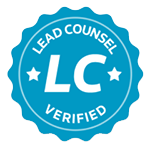Housekeepers in the hotel industry are at risk of contracting bloodborne pathogens. This can happen when they are cleaning rooms vacated by guests who are ill.
Housekeepers need to be aware of the risks and take precautions to protect themselves from these pathogens.
What are bloodborne pathogens?
Bloodborne pathogens are microorganisms in the blood. Coming in contact with these pathogens can cause diseases that may have serious health consequences, and in some cases, they can be fatal. Hotel housekeepers are at risk of exposure to these dangerous contaminants when cleaning guest rooms.
In some cases, bloodborne pathogens can be transmitted through contact with contaminated surfaces, such as doorknobs, bathroom surfaces or linens. In other cases, they may be inhaled or ingested if housekeepers come into contact with infected bodily fluids. Common bloodborne pathogens include HIV, hepatitis B, and hepatitis C.
To protect themselves, housekeepers should take precautions when handling linens and garbage. They should also wear personal protective equipment, such as gloves, whenever they come into contact with blood or bodily fluids.
What if you’ve been exposed?
It is vital to take immediate action if you think you may have been exposed to a bloodborne pathogen at work. First, wash the area of exposure with soap and water. If you have any open cuts or wounds, clean them thoroughly. If possible, remove any contaminated clothing and place it in a sealed bag. Then, notify your supervisor or employer so that they can take appropriate steps to protect other workers and clean the affected area.
Finally, seek medical attention as soon as possible. Your doctor will likely recommend a course of treatment, which may include vaccinations or antibiotics.
You may be eligible for workers’ compensation benefits if you have been exposed to a bloodborne pathogen at work. These benefits can help you cover the costs of medical treatment and lost wages.



